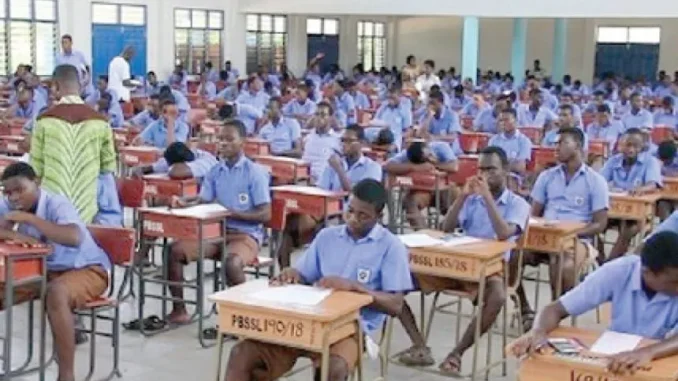
The Federal Government has approved the introduction of the Chinese language into the Senior Secondary School curriculum, with the policy set to begin in the 2025/2026 academic session.
The move comes after a review of the Basic and Senior Secondary Education Curriculum by the Nigerian Educational Research and Development Council (NERDC), under the Federal Ministry of Education. With this change, Chinese will now be offered alongside French and Arabic as part of the foreign language options available to students.
Education officials explained that Mandarin will be optional, not compulsory, giving students the chance to choose it as an international language. They added that the inclusion is aimed at helping students develop skills and cultural knowledge that could improve their global competitiveness.
Announcing the development at the inauguration of the 14th Chinese Corner at Government Secondary School, Tudun Wada, Abuja, the Secretary of Education for the Federal Capital Territory, Dr. Danlami Hayyo, said:
“May I inform you that in the recent review of our curriculum, the Chinese language has been selected as one of the international languages to offer in senior secondary schools.
“That is to say that the FCT has been very visionary in introducing the subject in our schools through the Chinese Corners early enough.
“Chinese Mandarin has the largest number of speakers in the world, and today it has become the language of commerce, education, and tourism. Our decision to delve into Chinese education and culture is a wise move.”
He noted that the initiative has already taken root in the FCT.
“The bilateral relations have led to the establishment of 13 Chinese Corners, and the commissioning of the 14th Corner at GSS Tudun Wada today.
“These centres have greatly enhanced education and cultural exchange between Nigeria and China.
”It has opened a window for better understanding and appreciation of our various cultures and given our students the opportunity to pursue further education in China.
”Today we are proud to say that it is only the FCT that has Chinese Corners in its schools in the whole federation.”
Hayyo ended his remarks with a Chinese proverb:
“Hai nei cun zhiji, tianya ruo bi lin,” meaning, “A bosom friend brings distant lands near.”
The decision highlights Nigeria’s growing relationship with China in areas such as trade, infrastructure, and technology. Experts say that offering Chinese language in Nigerian schools could prepare young people for opportunities in international business and cultural exchange.
Counsellor at the Chinese Embassy in Nigeria, Yang Jianxing, described the initiative as a reflection of the deep ties between both countries.
“Twelve years ago, out of the cherishment for China-Nigeria friendly relations and the expectation for cultural exchanges between the two countries, the Chinese Embassy in Nigeria and the FCT Secondary Education Board joined hands to establish the Chinese Corner as a unique platform for cultural and educational exchanges.”
He added that the initiative has since grown into:
“A link connecting Chinese and Nigerian cultures, a bridge narrowing the hearts of young people from the two countries, and one of the most popular cultural check-in spots among teachers and students in Abuja.”
Yang said the new centre marked a fresh phase of cooperation:
“Today, the inauguration of the Chinese Corner is not an end, but a new starting point for cultural exchanges between China and Nigeria.”
Also speaking, the Director/Secretary of the FCT Secondary Education Board, Dr. Muhammed Ladan, explained that the initiative goes beyond cultural ties.
“The Chinese Corners aim not just to foster people-to-people exchanges, but also to provide resources for learning Mandarin and opportunities for scholarships in China. It is also a means of strengthening diplomatic relations through artistic collaboration.”
However, concerns remain about how the new policy will be rolled out nationwide. Stakeholders have raised questions around teacher training, curriculum content, and access to learning materials across different states.
The Federal Government has promised that clear guidelines will be released before the official rollout, with a focus on preparing teachers and providing the necessary instructional support.
Leave a Reply